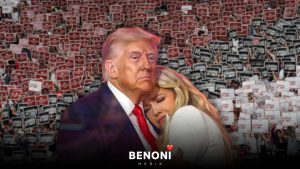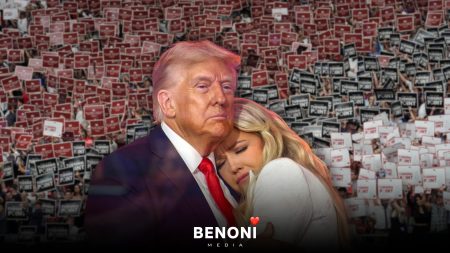As President-elect Donald Trump prepares to take office, his stance on the TikTok ban could define the start of his presidency.
Supreme Court Upholds TikTok Ban Law
On Friday, the U.S. Supreme Court upheld a law mandating TikTok’s separation from its China-based parent company, ByteDance, by Sunday or face a nationwide ban. The decision dismissed TikTok’s argument that the law infringes on the First Amendment rights of users and content creators.
The legislation, passed in April 2024 under President Joe Biden with bipartisan support, aims to shield U.S. user data from potential misuse by foreign adversaries. However, enforcement of the law now falls to the incoming Trump administration, setting the stage for a critical test of Trump’s leadership.
Trump’s Complex Relationship With TikTok
During his first term, Trump issued an executive order targeting ByteDance, citing national security concerns and alleging that TikTok’s data collection practices could serve Chinese government interests. Those efforts were tied up in court and stalled before Congress enacted the current law.
Now, Trump’s stance appears to have softened. During his 2024 presidential campaign, Trump embraced TikTok, amassing over 14 million followers and using the platform effectively for outreach. Critics suggest his change in tone may also be linked to his connections with Jeffrey Yass, a billionaire with a 15% stake in ByteDance.
In December, Trump hosted TikTok CEO Shou Zi Chew at his Mar-a-Lago estate, sparking speculation about a potential deal to save the app. After Friday’s Supreme Court decision, Chew thanked Trump in a video message, further fueling rumors of a collaborative effort to resolve the issue.
Our response to the Supreme Court decision:https://t.co/xSkvkOgpuV
— TikTok Policy (@TikTokPolicy) January 17, 2025
A Temporary Shutdown and the Battle to Save TikTok
TikTok faced a brief 14-hour shutdown over the weekend as the ban took effect. However, Trump declared the app’s return during a Sunday rally, part of his three-day inauguration event. Speaking to a crowd in Washington, D.C., Trump said, “As of today, TikTok is back. We have no choice; we have to save it.”
Trump hinted at a potential “joint venture” that would allow the U.S. to own 50% of the company, promising it would “make a lot of money” while addressing national security concerns. His team is reportedly working on an executive order to extend the deadline for ByteDance to sell TikTok, leveraging a clause in the law that allows a 90-day extension if progress toward divestiture is demonstrated.
What’s Next for TikTok?
For TikTok to remain operational in the U.S., ByteDance must divest its ownership to a non-Chinese company. However, ByteDance has shown little willingness to sell, leaving Trump with limited options.
If no deal is reached, the law authorizes the U.S. attorney general to pursue civil suits against American companies hosting TikTok or offering it for download. With penalties of $5,000 per user, fines could total billions of dollars, potentially deterring essential service providers from supporting the platform.
Balancing National Security and Popularity
Trump’s approach to the TikTok ban will reveal his ability to prioritise national security while navigating his political and personal interests. His supporters argue that his negotiation skills and electoral mandate position him uniquely to broker a solution. Critics, however, question whether his personal success on TikTok and ties to key stakeholders might influence his decision-making.
As the clock ticks down, Trump’s handling of the TikTok ban could shape his presidency’s trajectory, highlighting the challenges of enforcing laws that address both security concerns and the demands of a globalised digital economy.








